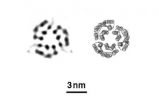(Press-News.org) MAYWOOD, IL – New insights into the physiological causes of depression are leading to treatments beyond common antidepressants such as Prozac and Zoloft, researchers are reporting in the in the journal Current Psychiatry.
Depression treatments on the horizon include new medications, electrical and magnetic stimulation of the brain and long-term cognitive behavioral therapy for stress management.
Authors are Murali Rao, MD, and Julie M. Alderson, DO. Rao is professor and chair of the Department of Psychiatry and Behavioral Neurosciences at Loyola University Chicago Stritch School of Medicine, and Alderson is a resident at East Liverpool City Hospital in East Liverpool, Ohio.
For more than 50 years, depression has been studied and understood as a deficiency of chemical messengers, called neurotransmitters, that carry signals between brain cells. Commonly used antidepressants are designed to either increase the release or block the degradation of three neurotransmitters – dopamine, norepinephrine and serotonin.
But drugs that target neurotransmitters, such as Prozac, Zoloft and Paxil, succeed in inducing the remission of depression in fewer than half of patients. This has prompted researchers "to look beyond neurotransmitters for an understanding of depressive disorders," Rao and Alderson write.
New theories of depression are focusing on differences in neuron density in various regions of the brain; on the effect of stress on the birth and death of brain cells; on the alteration of feedback pathways in the brain and on the role of inflammation evoked by the stress response.
Chronic stress is believed to be the leading cause of depression, the authors write. Long-term stress harms cells in the brain and body. Stressful experiences are believed to be closely associated with the development of psychological alterations and, thus, neuropsychiatric disorders. In conditions of chronic stress exposure, nerve cells in the hippocampus begin to atrophy. (The hippocampus is a part of the brain involved with emotions, learning and memory formation.)
The new depression theories "should not be viewed as separate entities because they are highly interconnected," Rao and Alderson write. "Integrating them provides for a more expansive understanding of the pathophysiology of depression and biomarkers that are involved."
Such biomarkers are molecules in the body that can be indicators of depression. The authors identify more than a dozen potential biomarkers depression, including monoamine regulators; proinflammatory cytokines and other inflammatory mediators; mediators of glutaminergic activity and GABAergic activity; and regulators of neurogenesis.
Depression treatments currently offered or on the horizon include corticotropin-releasing hormone antagonists; dexamethasone; partial adrenalectomy; long-term cognitive behavioral therapy; ketamine and other NMDA antagonists; benzodiazepines; anesthetics; deep brain stimulation; transcranial magnetic stimulation; exogenous brain-derived neurotrophic factor; selective serotonin reuptake inhibitors; tricyclic antidepressants; atypical antidepressants; reduction in inflammation; and anti-inflammatory drugs.
It can take several months to recover from depression. Thus, Rao and Alderson write, current depression treatment programs that average six weeks "are not long enough for adequate recovery."
INFORMATION:
Their article is titled "Dissecting melancholia with evidence-based biomarker tools."
New depression treatments reported
Biomarkers could help classify sub-types of depression
2014-02-14
ELSE PRESS RELEASES FROM THIS DATE:
Geographic variation of human gut microbes tied to obesity
2014-02-14
People living in cold, northern latitudes have bacteria in their guts that may predispose them to obesity, according to a new study by researchers at the University of California, Berkeley, and the University of Arizona, Tucson.
The researchers' analysis of the gut microbes of more than a thousand people from around the world showed that those living in northern latitudes had more gut bacteria that have been linked to obesity than did people living farther south.
The meta-analysis of six earlier studies by UC Berkeley graduate student Taichi Suzuki and evolutionary ...
What do women want? It depends on the time of the month
2014-02-14
If she loves you and then she loves you not, don't blame the petals of that daisy. Blame evolution.
UCLA researchers analyzed dozens of published and unpublished studies on how women's preferences for mates change throughout the menstrual cycle. Their findings suggest that ovulating women have evolved to prefer mates who display sexy traits – such as a masculine body type and facial features, dominant behavior and certain scents – but not traits typically desired in long-term mates.
So, desires for those masculine characteristics, which are thought to have been ...
Another reason to not mix work and family: Money makes parenting less meaningful
2014-02-14
Austin – February 14, 2014 - Money and parenting don't mix. That's according to new research that suggests that merely thinking about money diminishes the meaning people derive from parenting. The study is one among a growing number that identifies when, why, and how parenthood is associated with happiness or misery.
"The relationship between parenthood and well-being is not one and the same for all parents," says Kostadin Kushlev of the University of British Columbia. While this may seems like an obvious claim, social scientists until now have yet to identify the psychological ...
In-hospital formula use deters breastfeeding
2014-02-14
(SACRAMENTO, Calif.) — When mothers feed their newborns formula in the hospital, they are less likely to fully breastfeed their babies in the second month of life and more likely to quit breastfeeding early, even if they had hoped to breastfeed longer, UC Davis researchers have found.
"We are a step closer to showing that giving formula in the hospital can cause problems by reducing how much women breastfeed later," says Caroline Chantry, lead author and professor of clinical pediatrics at UC Davis Medical Center. "Despite being highly motivated to breastfeed their babies, ...
Superbright and fast X-rays image single layer of proteins
2014-02-14
RICHLAND, Wash. -- In biology, a protein's shape is key to understanding how it causes disease or toxicity. Researchers who use X-rays to takes snapshots of proteins need a billion copies of the same protein stacked and packed into a neat crystal. Now, scientists using exceptionally bright and fast X-rays can take a picture that rivals conventional methods with a sheet of proteins just one protein molecule thick.
Using a type of laser known as XFEL, the technique opens the door to learning the structural details of almost 25 percent of known proteins, many of which have ...
Head, neck injuries may increase stroke risk among trauma patients younger than 50
2014-02-14
Suffering an injury to the head or neck increases ischemic stroke risk three-fold among trauma patients younger than 50, according to research presented at the American Stroke Association's International Stroke Conference 2014.
"These findings are important because strokes after trauma might be preventable," said Christine Fox, M.D., M.A.S., lead author and assistant professor of neurology at the University of California San Francisco.
Researchers studied the health records of 1.3 million patients younger than 50 years who had been treated in emergency trauma rooms. ...
Hispanic stroke patients less likely to receive clot-busting drugs in
2014-02-14
Hispanic stroke patients admitted to hospitals in the border states of California, Arizona, New Mexico and Texas were less likely than non-Hispanics in the same border states to receive clot-busting drugs and more likely to die, according to research presented at the American Stroke Association's International Stroke Conference 2014.
Researchers analyzed stroke care for Hispanic and non-Hispanic patients according to demographics and clinical characteristics in states bordering Mexico and states not on the Mexican border. They found:
Of the nearly 35,000 Hispanic stroke ...
Stroke survivors often return to driving without being evaluated for ability
2014-02-14
Stroke survivors often resume driving without being formally evaluated for ability — though stroke can cause deficits that can impair driving, according to research presented at the American Stroke Association's International Stroke Conference 2014.
Researchers surveyed 162 stroke survivors a year after their strokes and found:
More than 51 percent returned to driving — many a month after suffering a stroke.
Only 5.6 percent received a formal driving evaluation.
Eleven percent of those who returned to driving reported their strokes had greatly impacted their abilities ...
What makes the newborn immune system in the lungs different and vulnerable?
2014-02-14
Newborns are more susceptible to infections, presumably because of their immature and inexperienced immune systems. The most common dangerous condition in newborns and infants are lower respiratory tract infections caused by viruses, especially respiratory syncytial virus (RSV). A study published on February 13th in PLOS Pathogens shows how the immune system in the lungs during early life differs from the one in older children and adults.
Ideally, newborns could be protected against RSV by vaccination, but it is known that the immune system in early life is less responsive ...
Intensive dialysis in pregnant women with kidney failure benefits mother and baby
2014-02-14
Washington, DC (February 13, 2014) — Intensive dialysis treatments in pregnant women with kidney failure lead to a higher proportion of live births than standard dialysis care, according to a study appearing in an upcoming issue of the Journal of the American Society of Nephrology (JASN). The findings suggest that more frequent and longer dialysis sessions should be considered for dialysis patients of childbearing age who want to become pregnant or who are already pregnant.
When young women develop advanced kidney disease, pregnancy becomes dangerous and often impossible ...
LAST 30 PRESS RELEASES:
Public and patient involvement in research is a balancing act of power
Scientists discover “bacterial constipation,” a new disease caused by gut-drying bacteria
DGIST identifies “magic blueprint” for converting carbon dioxide into resources through atom-level catalyst design
COVID-19 vaccination during pregnancy may help prevent preeclampsia
Menopausal hormone therapy not linked to increased risk of death
Chronic shortage of family doctors in England, reveals BMJ analysis
Booster jabs reduce the risks of COVID-19 deaths, study finds
Screening increases survival rate for stage IV breast cancer by 60%
ACC announces inaugural fellow for the Thad and Gerry Waites Rural Cardiovascular Research Fellowship
University of Oklahoma researchers develop durable hybrid materials for faster radiation detection
Medicaid disenrollment spikes at age 19, study finds
Turning agricultural waste into advanced materials: Review highlights how torrefaction could power a sustainable carbon future
New study warns emerging pollutants in livestock and aquaculture waste may threaten ecosystems and public health
Integrated rice–aquatic farming systems may hold the key to smarter nitrogen use and lower agricultural emissions
Hope for global banana farming in genetic discovery
Mirror image pheromones help beetles swipe right
Prenatal lead exposure related to worse cognitive function in adults
Research alert: Understanding substance use across the full spectrum of sexual identity
Pekingese, Shih Tzu and Staffordshire Bull Terrier among twelve dog breeds at risk of serious breathing condition
Selected dog breeds with most breathing trouble identified in new study
Interplay of class and gender may influence social judgments differently between cultures
Pollen counts can be predicted by machine learning models using meteorological data with more than 80% accuracy even a week ahead, for both grass and birch tree pollen, which could be key in effective
Rewriting our understanding of early hominin dispersal to Eurasia
Rising simultaneous wildfire risk compromises international firefighting efforts
Honey bee "dance floors" can be accurately located with a new method, mapping where in the hive forager bees perform waggle dances to signal the location of pollen and nectar for their nestmates
Exercise and nutritional drinks can reduce the need for care in dementia
Michelson Medical Research Foundation awards $750,000 to rising immunology leaders
SfN announces Early Career Policy Ambassadors Class of 2026
Spiritual practices strongly associated with reduced risk for hazardous alcohol and drug use
Novel vaccine protects against C. diff disease and recurrence
[Press-News.org] New depression treatments reportedBiomarkers could help classify sub-types of depression

